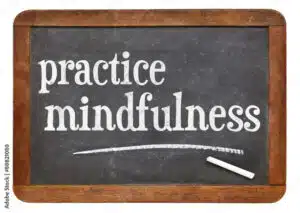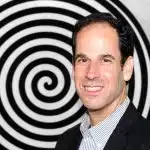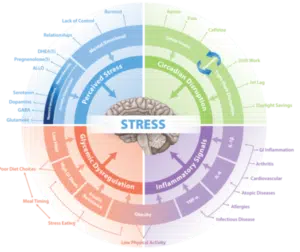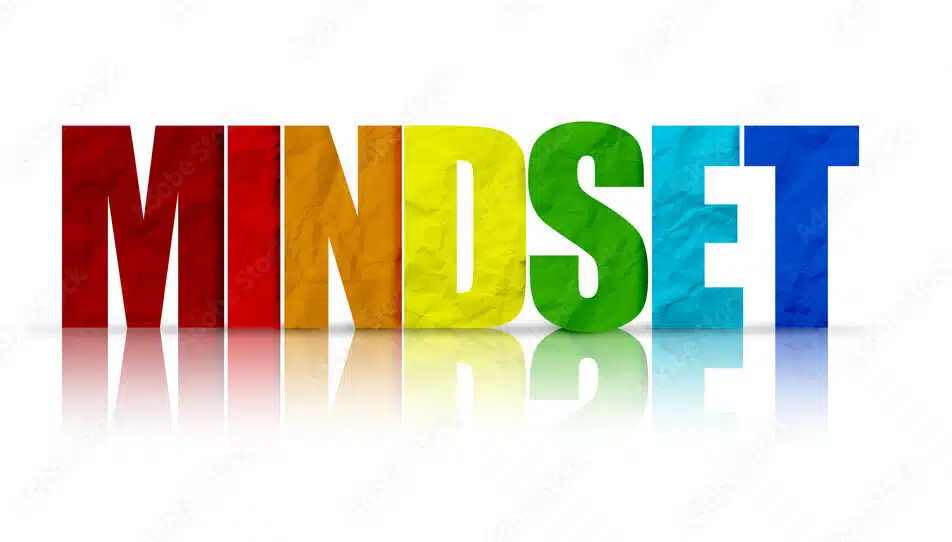Behavior Change Begins in the Mind
Behavior change is difficult because individuals typically focus on what they are giving up as opposed to what they will gain by making lifestyle changes that promote optimal health. Even when people set SMART goals that are specific, measurable, attainable, relevant, and timely, they often struggle to meet those goals. By now, many people have already given up on their New Year’s resolutions and see themselves as failures making it even more difficult to pursue their health and fitness goals.
Behavior change begins in the mind so it makes sense to spend time training our brains to create a mindset that will enable us to become more resilient and self-compassionate.
Cultivating a Growth Mindset
In her book Growth Mindset, Carol Dweck discusses fixed and growth mindsets and how they impact our perspective when we experience setbacks. Those with a fixed mindset see their abilities as predetermined so they often give up when they are challenged and become frustrated. On the other hand, those with a growth mindset look for the opportunities embedded in the challenges believing their efforts will determine their success. They possess the ability to learn from their experiences as well as feedback from others seeing this information as valuable stepping stones to success.
By exploring a growth mindset, we have access to the tools that enable us to learn from our mistakes and increase our resilience. Begin to create awareness of your type of mindset by noticing your thoughts. When things go wrong, do you tend to blame others or situations as opposed to looking at your role? Once you become aware of your mindset, you can begin to challenge your thoughts and recognize that you have a choice in how to view and respond to an event.
Exploring Mindfulness Practices
The COVID crisis has highlighted the need to prioritize our mental health given its challenges that have caused individuals to feel more lonely, stressed, and anxious. Many people have become more sedentary in the past 2 years and feel overwhelmed by the thought of being physically active, following a healthy eating pattern, and experiencing restorative sleep.
When we experience negative emotions, it not only impacts us but our interactions with others as well. These negative emotions are messengers that our needs are not being met and/or that we are not living in a way that is aligned with our values. The next time that you experience a negative emotion, take a moment to pause and notice the emotion to create awareness. Identify and name the emotion so that you can begin to see what need is not being met or if a behavior is not aligned with your values. Naming our emotion will help create some distance from the emotion so that we can engage with it, release it, and ultimately learn from the experience. Identifying our needs helps us to become unstuck from our negative emotions so that we can move forward and engage with our positive emotions.

Positive emotions such as gratitude and hope can be cultivated through mindfulness, and there are free apps such as the Healthy Minds Program that can help individuals cultivate a growth mindset and become more self-aware allowing them to see how their thoughts and emotions shape how they view the world. By taking time for reflection, we can learn to become more patient and less judgmental of both ourselves and others.
Becoming more self-compassionate allows us to be more forgiving when we don’t reach our goals exactly when we had hoped to do so. With self-compassion, we treat ourselves with kindness which enables us to let go of our negative emotions so that we can continue to grow and move toward our goals. Mindfulness practices increase our awareness that we can make intentional choices that will benefit our health.
Redefine Your Health with Lifestyle Medicine
Lifestyle medicine provides a framework for preventing chronic diseases and promoting optimal health through the 6 Pillars of Lifestyle Medicine which include being physically active, following a healthy eating pattern, experiencing restorative sleep, managing stress with success, enjoying social connections, and avoiding risky substances. This is an evidence-based approach that invites us to replace unhealthy behaviors with positive ones.
We can use mindfulness practices as a strategy to improve the 6 Pillars of Lifestyle Medicine by observing our breath, thoughts, and emotions. A calm mind helps us to be present at the moment enabling us to become better listeners to understand a variety of perspectives improving our relationships. This calmness enables us to go to bed with a clear mind so that we can experience the restorative sleep that enables us to awaken with energy. Mindfulness practices help us discover our purpose and why so that we can make intentional choices about how we eat, move, and spend our time. Knowing our why allows us to make decisions intentionally so that we can avoid temptations at the moment as we keep the bigger picture in mind.
We are bombarded with health information and most of us know the impact of our lifestyle choices and yet we continue to indulge in the same habits. They say that insanity is doing the same thing over and over and expecting different results. So, before you set a goal about losing weight or running a race, you might want to explore your mindset and take some time to engage with mindfulness practices. Behavior change begins in the mind, and you can redefine your health by training your brain.

Suzanne Stringer
Related Posts



Meditative Mind – One Simple Exercise To Strengthen Your Mind




